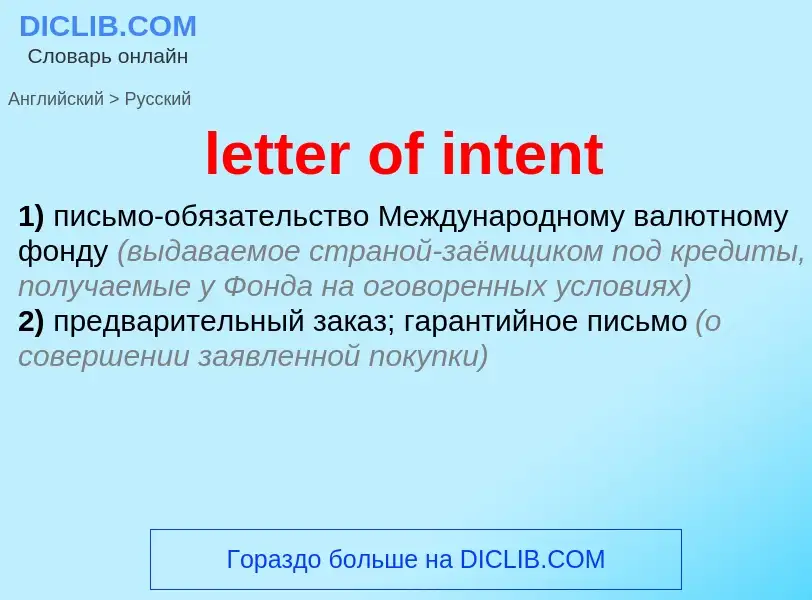Tradução e análise de palavras por inteligência artificial ChatGPT
Nesta página você pode obter uma análise detalhada de uma palavra ou frase, produzida usando a melhor tecnologia de inteligência artificial até o momento:
- como a palavra é usada
- frequência de uso
- é usado com mais frequência na fala oral ou escrita
- opções de tradução de palavras
- exemplos de uso (várias frases com tradução)
- etimologia
letter of intent - tradução para russo
2) предварительный заказ; гарантийное письмо (о совершении заявленной покупки)
['kʌvənəut]
страхование
временное свидетельство о страховании (выдаваемое брокером страхователю)
Definição
.
Wikipédia

A letter of intent (LOI or LoI, or Letter of Intent) is a document outlining the understanding between two or more parties which they intend to formalize in a legally binding agreement. The concept is similar to a heads of agreement, term sheet or memorandum of understanding. Merger and acquisition agreements, joint venture agreements, real property lease agreements and several other categories of agreements often make use of a letter of intent.
The capitalized form Letter of Intent may be used in legal writing, but only when referring to a specific document under discussion.
LOIs resemble short, written contracts, often in tabular form. They are not binding on the parties in their entirety. Many LOIs, however, contain provisions that are binding, such as those governing non-disclosure, governing law, exclusivity or a covenant to negotiate in good faith. A LOI may sometimes be interpreted by a court of law as binding the parties to it if it too-closely resembles a formal contract and does not contain a clear disclaimer.
A letter of intent may be presented by one party to another party and subsequently negotiated before execution (or signature). If carefully negotiated, a LOI may serve to protect both parties to a transaction. For example, a seller of a business may incorporate what is known as a non-solicitation provision, which would restrict the buyer's ability to hire an employee of the seller's business should the two parties not be able to close the transaction. On the other hand, a LOI may protect the buyer of a business by expressly conditioning its obligation to complete the transaction if it is unable to secure financing for the transaction.


